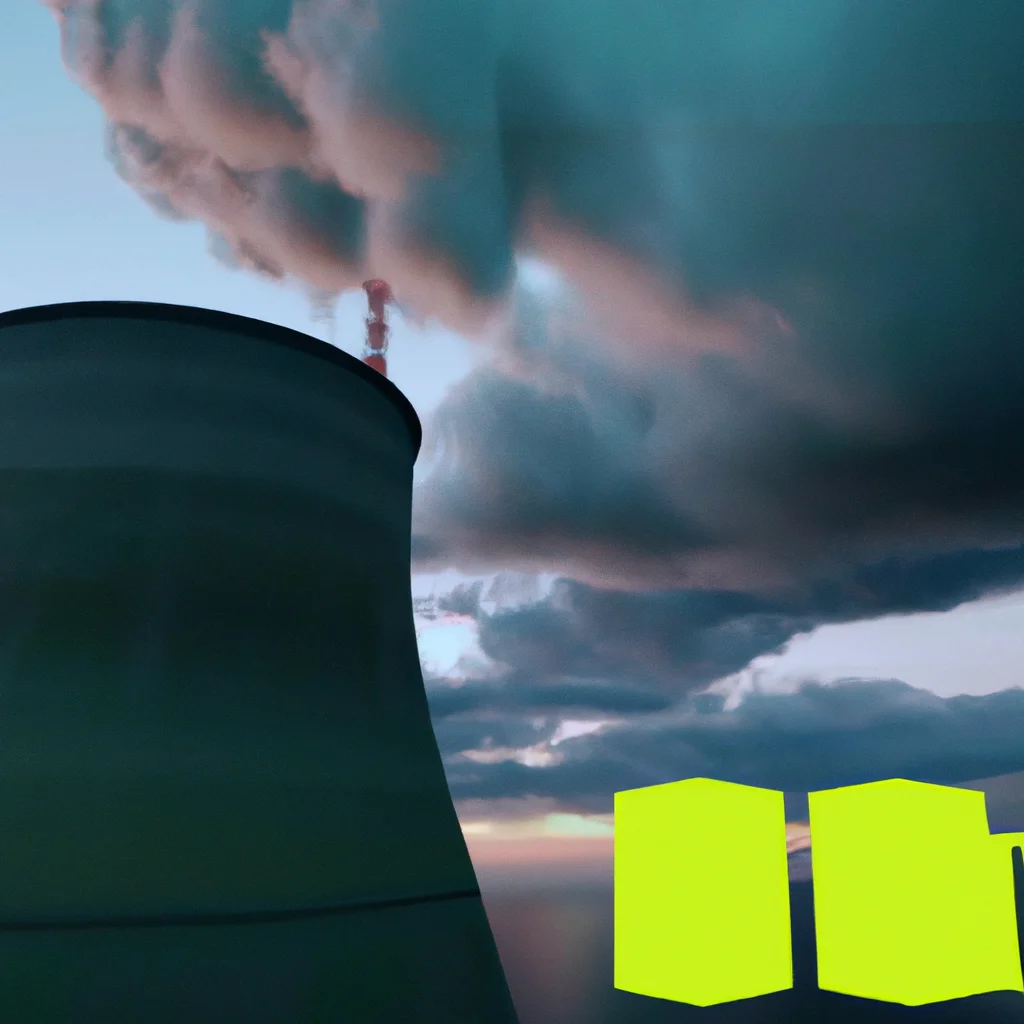How does a nuclear reactor generate power?


How does a nuclear reactor generate power?
Nuclear energy is a powerful source of electricity, and nuclear reactors are the machines that generate this energy. Nuclear reactors work by harnessing the energy created by nuclear fission to generate heat, which is then used to create steam that drives turbines to generate electricity. In this article, we will explore the science behind how a nuclear reactor generates power.
What is a Nuclear Reactor?
A nuclear reactor is a machine that uses nuclear technology to generate power. Nuclear reactors are typically found in nuclear power plants and are used to generate electricity on a large scale. The basic components of a nuclear reactor include:
- Nuclear fuel (usually uranium or plutonium)
- A moderator (to slow down the neutrons produced during fission)
- Coolant (to remove heat produced during fission)
- A control system (to regulate the rate of fission and prevent overheating)
Nuclear Fission
The nuclear fuel used in nuclear reactors undergoes a process called nuclear fission. Nuclear fission is the process of splitting the nucleus of an atom into two smaller nuclei, which releases a large amount of energy in the form of heat and radiation.
When a neutron collides with the nucleus of a uranium atom, the nucleus splits into two smaller nuclei and releases two or three neutrons. These neutrons then collide with other uranium atoms, causing more fission to occur. This process is known as a nuclear chain reaction.
Generating Power
The heat produced during nuclear fission is used to generate steam, which drives turbines to generate electricity. The process of generating electricity in a nuclear reactor can be broken down into the following steps:
- Heat is produced during nuclear fission.
- The heat is used to boil water, which creates steam.
- The steam drives turbines, which generate electricity.
- The electricity is sent to a transformer, which increases the voltage of the electricity to the level needed for transmission.
- The electricity is sent to the grid and distributed to homes and businesses.
Nuclear Physics and Engineering
The science behind nuclear reactors is complex and involves a combination of nuclear physics and engineering. Nuclear physicists study the behavior of atoms and subatomic particles, while nuclear engineers design and build nuclear reactors.
Nuclear engineers must ensure that nuclear reactors are designed and built to withstand extreme conditions, such as high temperatures and radiation. They also must develop safety protocols to prevent accidents and ensure that the reactors are operated safely.
Conclusion
In conclusion, nuclear reactors generate power by using nuclear fission to produce heat, which is then used to generate steam and drive turbines. The science behind nuclear reactors is complex and involves a combination of nuclear physics and engineering. Despite the controversies surrounding nuclear energy, it remains a powerful source of electricity and plays an important role in meeting the world’s energy needs.
Recent Posts
How do I create an engaging and informative online quiz or assessment?
Creating an engaging and informative online quiz or assessment can be a powerful tool for… Read More
What are the most effective methods for managing and reducing work-related stress in the hospitality industry?
Work-related stress is a common issue in the hospitality industry, where employees often face long… Read More
How can I improve my assertiveness and communication skills in a leadership position?
In a leadership position, assertiveness and effective communication skills are crucial for success. Being able… Read More
What are the key elements of a successful employee recognition and rewards program?
Employee recognition and rewards programs play a crucial role in motivating and engaging employees, as… Read More
How do I effectively manage and respond to customer feedback and reviews?
Customer feedback and online reviews play a crucial role in shaping a company's reputation and… Read More
What are the best strategies for effective time management as a stay-at-home parent?
Effective time management is crucial for stay-at-home parents who juggle multiple responsibilities on a daily… Read More